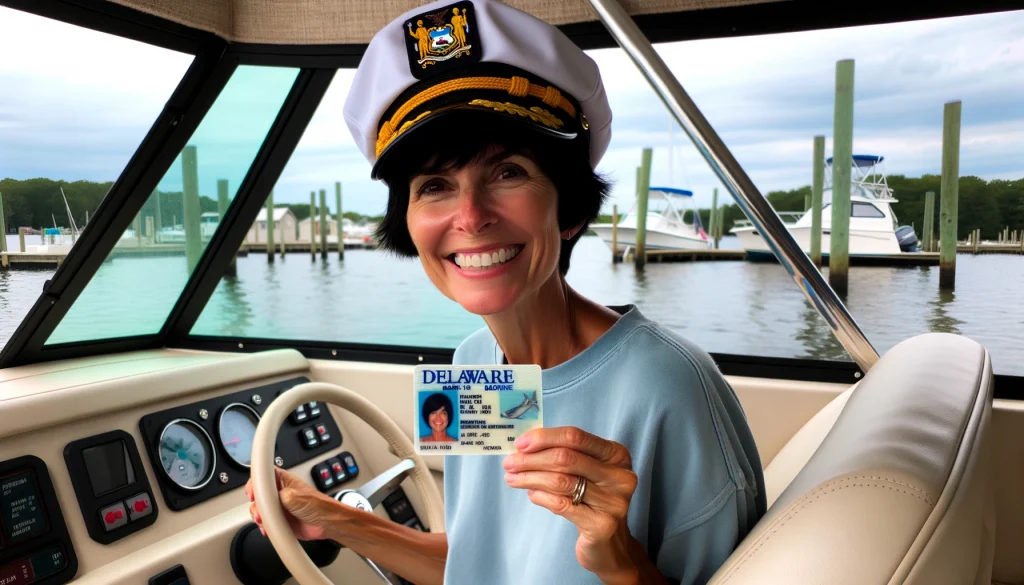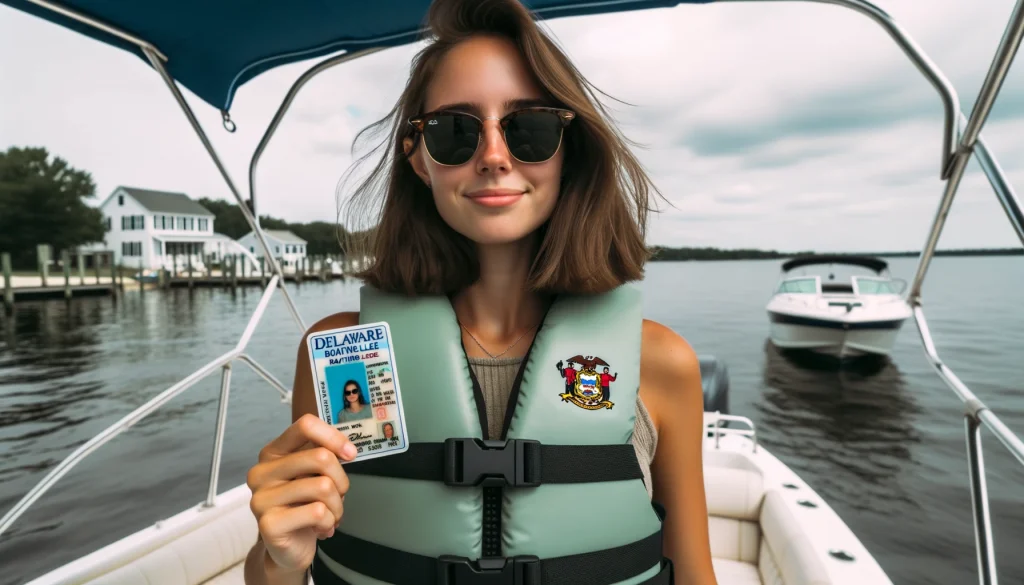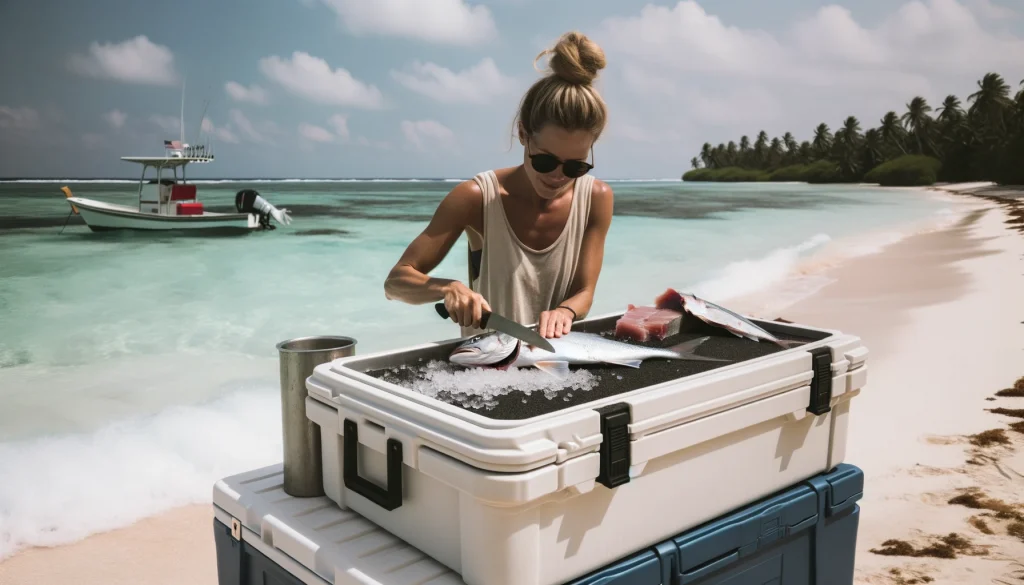Delaware Fishing License: Essential Guide for Anglers
Fishing in Delaware offers numerous opportunities for anglers to enjoy a variety of fish species in beautiful natural environments throughout the state. To engage in recreational fishing, it is essential that anglers obtain a Delaware fishing license, which covers fishing, crabbing, and clamming in all Delaware waters. Licenses are required to ensure responsible and sustainable fishing practices, and they must be purchased annually by recreational anglers.

The Delaware Division of Fish and Wildlife is responsible for managing fishing resources, issuing licenses, and providing information and guidelines for legal and ethical fishing activities. There are different types of fishing licenses available depending on your residency, age, and desired fishing activities. Moreover, certain special permits and stamps may also be required for specific activities, such as waterfowl hunting or fishing in designated trout waters, to further protect and conserve the state's valuable natural resources.
Key Takeaways
- Delaware fishing licenses are required for recreational fishing, crabbing, and clamming to ensure sustainable practices and resource conservation.
- The Division of Fish and Wildlife manages fishing resources, license issuance, and provides important guidelines for fishing activities in Delaware.
- There are various types of fishing licenses and special permits available depending on residency, age, and desired fishing activities.

Understanding Fishing Licenses and Permits
In Delaware, it is required for both residents and non-residents over age 16 to obtain a fishing license for all fishing, clamming, or crabbing activities in tidal and non-tidal waters. The Delaware Department of Natural Resources and Environmental Control (DNREC) oversees the issuance of fishing licenses and other permits related to fishing activities.
A Delaware recreational fishing license covers recreational fishing, crabbing, and clamming in all Delaware waters. These licenses must be purchased annually by recreational anglers. In addition to the license, recreational anglers who purchase an individual fishing license or a resident boat fishing license will automatically be issued a Delaware Fisherman Information Network (FIN) number. The FIN number is free of cost and must be renewed annually.

A general fishing license is required for fishing, crabbing, or clamming in both tidal and non-tidal waters throughout the state of Delaware, with some exemptions. Individuals can use the Digital DNREC ePermitting system to purchase recreational fishing and hunting licenses, license exempt numbers, deer harvest report cards and tags, deer damage assistance, hunter education, waterfowl stamps, and permits.
It is crucial for recreational anglers to familiarize themselves with Delaware's fishing regulations. These regulations ensure the conservation of fish and wildlife resources, as well as enhance the overall fishing experience. Failure to comply with fishing regulations and permit requirements may result in fines or penalties.
In summary, anyone planning to fish, crab, or clam in Delaware waters must first obtain the appropriate license and permits. DNREC provides a comprehensive online platform to facilitate the license purchasing process and promote responsible fishing practices.

Types of Fishing Licenses
Residential Fishing License
A residential fishing license is required for Delaware residents who are 16 years old or older. This license allows anglers to fish in both tidal and non-tidal waters throughout the state. The cost of a fishing license for Delaware residents is $8.50.
Non-Residential Fishing License
Non-residential anglers are also required to obtain a fishing license to fish in Delaware. The General fishing license for non-residents is available at a cost of $20. Additionally, there is an option for a seven-day tourist fishing license priced at $12.50.
Boat Fishing License
Delaware offers group fishing licenses for boats, covering the boat owner and all occupants within the boat. The pricing for these licenses depends on the size of the boat:
- For boats 20 feet or less, the group license costs $40
- For boats over 20 feet, the group license costs $50
Head Boat License
A head boat license is required for commercial fishing vessels carrying passengers for fishing activities. Delaware regulates these vessels separately with specific requirements and limitations. For more information on head boat licenses, it is advisable to contact the Boat Registration Office at 302-739-9916.
Charter Boat License
Charter boat licenses are issued for boats carrying passengers on fishing trips for a fee. In Delaware, charter boats must operate in compliance with state regulations and licensing requirements. To obtain a charter boat license or for more information, contact the Boat Registration Office at 302-739-9916.

Special Fishing Permits and Stamps
Trout Stamp
In Delaware, a Trout Stamp is required for anyone above the age of 15 who wants to fish for trout in designated trout waters. The stamp must be carried alongside the fishing license. However, Delaware residents aged 65 and older are exempt from purchasing a Delaware Trout Stamp(source).
Surf Fishing Vehicle Permit
Surf fishing enthusiasts looking to explore Delaware's state park beaches can obtain a Surf Fishing Vehicle Permit. Both residents and non-residents with a valid permit are exempt from fishing license requirements when operating a vehicle in a designated Delaware State Park surf fishing area(source).
Fishing Guide
Delaware requires fishing guides to obtain a Fishing Guide License before legally operating within the state. This ensures that the guide is knowledgeable about local fishing regulations, safety precautions, and requirements for permits and stamps, such as the Trout Stamp and Surf Fishing Vehicle Permit. It also helps maintain the overall quality of the Delaware fishing experience for anglers and tourists alike. To become a licensed fishing guide, applicants must fulfill specified criteria and obtain the necessary licenses and certifications(source).

Division of Fish and Wildlife Management
The DNREC Division of Fish and Wildlife is responsible for conserving and managing Delaware's fish and wildlife and their habitats. This includes providing fishing, hunting, wildlife viewing, and boating access on approximately 68,000 acres of public land. The division plays an essential role in ensuring the conservation of fish and wildlife resources in the state and promoting safe boating.
To achieve their goals, the division works hand-in-hand with the public to ensure compliance with laws and regulations related to fishing and hunting. This encompasses issuing recreational licenses, permits, stamps, and passes for various activities, including fishing and hunting in Delaware. These licenses and permits can be purchased online via Digital DNREC or at authorized local license agents.

In addition to providing access to recreational activities, the DNREC Division of Fish and Wildlife actively conducts research and monitoring of fish and wildlife resources. This includes the efforts of the Fisheries Section, which works to enhance and protect the state's fish and aquatic resources in support of recreational and commercial fishing. The Fisheries Section is also responsible for upholding first-class fishing and boating access to Delaware's many waterways.
Through a combination of licensing, research, and enforcement, the DNREC Division of Fish and Wildlife is committed to the sustainable management of Delaware's valuable fish and wildlife resources. This ensures that future generations can continue to enjoy the state's rich natural offerings and engage in outdoor recreational activities like fishing and hunting.

Buying your License Online
Digital DNREC
The state of Delaware has introduced a new online platform known as Digital DNREC, where anglers can easily purchase their fishing licenses. This user-friendly electronic web portal allows you to do business with DNREC 24 hours a day, 7 days a week, and from the convenience of your home or business.
EPermitting System
Replacing the old "egov" online licensing system, the Digital DNREC ePermitting system is specifically designed for purchasing recreational licenses, passes, permits, and stamps. The ePermitting system accepts credit cards such as Visa, Discover, or MasterCard for secure and fast transactions. This makes it much easier for you to acquire a Delaware fishing license without having to visit a physical location.
Authorized License Agents
In addition to the online platform, Delaware fishing licenses can also be purchased in-person from over 40 authorized license agents located throughout the state. These agents can assist you in obtaining your fishing license efficiently and conveniently. You can also visit the licensing desk inside DNREC's Richardson and Robbins Building, located at 89 Kings Highway SW, in Dover for in-person assistance.
By utilizing the Digital DNREC platform or visiting an authorized license agent, you can quickly and efficiently obtain your Delaware fishing license, ensuring a stress-free and enjoyable fishing experience.

Understanding Fishing Restrictions
In Delaware, fishing regulations are in place to promote sustainable fish populations and protect the state's aquatic resources. These regulations include size, creel limits, and fishing seasons. It is crucial for anglers to understand and adhere to these rules to maintain a healthy marine ecosystem while engaging in recreational fishing activities.
Size restrictions are implemented to ensure that only fish of a certain size are caught, allowing the smaller specimens to grow and reproduce. This measure also helps maintain a balanced predator-prey relationship in the ecosystem. Anglers should familiarize themselves with the specific size limits for each species before heading out on the water. For example, the state may require that a striped bass be at least 28 inches long in order to be legally harvested.
Creel limits refer to the maximum number of fish an angler can keep in a day. These limits help control fishing pressure on specific species, enabling fish populations to recover after periods of stress or overfishing. Creel limits vary depending on the targeted species and location, so it is essential to check the Delaware fishing regulations for the most up-to-date information.
Fishing seasons dictate when specific species can be targeted, ensuring that fish have ample time to spawn and grow before anglers may harvest them. Closed seasons protect species during their most vulnerable life stages, such as spawning periods, while open seasons allow for recreational fishing. Additionally, the state of Delaware offers free fishing days as part of National Fishing and Boating Week, during which anglers can fish without a license.
It is important to note that these restrictions can change depending on factors such as environmental conditions or fish population data. Therefore, it's recommended to always stay updated on the current regulations before heading out to fish in Delaware's waters. By adhering to these guidelines, anglers contribute to the conservation and sustainability of the state's fisheries for future generations to enjoy.

Fishing Areas in Delaware
Delaware offers diverse fishing opportunities in its various water bodies. From sandy beaches to scenic wildlife areas, anglers can choose a suitable location to enjoy their favorite pastime. This section highlights some of the popular fishing areas in Delaware, such as Delaware State Park Beach, Delaware Wildlife Areas, and numerous ponds and streams.
Delaware State Park Beach
Delaware's State Park Beaches provide excellent opportunities for anglers, as well as those interested in crabbing and clamming. These beaches are popular destinations for both residents and tourists and require a general fishing license for fishing in the tidal and non-tidal waters. Surf fishing permits are also available for vehicle operators with a valid Delaware surf fishing vehicle permit.
Delaware Wildlife Areas
The Delaware Wildlife Areas are managed by the Division of Fish and Wildlife and offer a variety of fishing experiences. These wildlife areas provide habitats for numerous fish species, giving anglers a chance to catch different types of fish as they explore the diverse ecosystems. A Delaware recreational fishing license is required for fishing in these areas.
Ponds and Streams
Delaware also boasts numerous ponds and streams across the state, offering anglers serene and picturesque settings to cast their lines. These water bodies are home to various fish species and require a general fishing license for recreational fishing. Anglers can consult the Delaware Fishing Guide for comprehensive information on ponds and streams, including fishing rules and regulations, season dates, and limits.

Fishing Exemptions
In Delaware, certain individuals are exempt from obtaining a fishing license due to various factors such as age, health conditions, and military service. These exemptions aim to make fishing more accessible and enjoyable for different groups of people.
Individuals who are under the age of 16 or over the age of 65 do not require a fishing license in Delaware, regardless of whether they are residents or non-residents. This age-based exemption allows both seniors and children to fish without obtaining a license, simplifying the process and making it more affordable.
Apart from age-based exemptions, specific health-related exemptions also exist. For example, any Delaware resident who is a patient in a rehabilitation hospital under the Department of Health and Social Services, or is legally blind, is exempt from obtaining a fishing license.
Military personnel, specifically those who are active members of the Delaware National Guard, are also exempt from needing a fishing license in Delaware. This exemption is a token of appreciation for their service and sacrifice.
Lastly, individuals who fish in fee-fishing facilities that are registered with the state are also exempt from obtaining a fishing license. This exemption facilitates easier access to fishing activities for those who prefer fishing in regulated, commercial environments.

Understanding the Fisherman Information Network
The Fisherman Information Network (FIN) is an important part of Delaware's fishing regulations. All Delaware anglers aged 16 or older are required to have a Delaware-issued FIN number before they can fish in the state's waters, be it tidal or non-tidal. This ensures that the state can effectively monitor fishing activities, manage resources, and enforce regulations. Acquiring a FIN number is both annual and free of charge, making it accessible to all anglers.
One notable aspect of the FIN number is that it is automatically issued with the purchase of a Delaware fishing license. Therefore, licensed anglers don't need to go through an extra step to obtain their FIN number. Upon license issuance, they are ready to fish in Delaware waters. The FIN number requirements apply not only to residents but also to non-resident anglers over the age of 16.
Even in cases where anglers are exempt from obtaining a general fishing license, they must still have a free Delaware Fisherman Information Network (FIN) number each year. This ensures that all relevant anglers are accounted for and that accurate data is maintained by the state for the purposes of resource management and conservation efforts.
In summary, the Fisherman Information Network (FIN) is a vital regulatory measure for both residents and non-residents fishing in Delaware. It ensures proper resource management and conservation efforts by the state, while also making it easier for anglers to comply with regulations. The annual FIN number can be easily acquired at no cost.

Frequently Asked Questions
How much is the cost for a fishing license in Delaware?
The cost of a fishing license in Delaware varies depending on the type of license and residency status. For Delaware residents, an annual fishing license costs $8.50, while non-residents can expect to pay a higher fee. There are also options for temporary licenses with shorter validity periods.
Where can I purchase a fishing license in Delaware?
Fishing licenses in Delaware can be purchased online through the DNREC website or at authorized license agents such as sporting goods stores and bait shops. You may also visit the Division of Fish and Wildlife offices in person to obtain a license.
What are the requirements for obtaining a crabbing license?
In Delaware, a crabbing license is not required; however, you must possess a valid Delaware fishing license to engage in crabbing activities. The fishing license covers recreational activities in both tidal and non-tidal waters, including crabbing.
Do I need a separate license for fishing on the beach?
No, a separate license is not required for beach fishing in Delaware. A valid Delaware fishing license is sufficient for all fishing activities in the state, including fishing on the beach.
How can I get a Delaware FIN number?
To obtain a Delaware Fisherman Information Network (FIN) number, you must register online at the DNREC website. The FIN number is issued annually, free of charge, and is required for anglers over the age of 16 fishing in Delaware waters.
Are there any reciprocal agreements with Maryland fishing licenses?
Yes, reciprocal agreements exist between Delaware and Maryland for certain waters. Anglers with a valid Delaware fishing license may fish in Maryland tidal waters (such as the Chesapeake Bay) without acquiring a separate Maryland license. Similarly, Maryland fishing license holders may fish in Delaware tidal waters without obtaining a separate Delaware license. However, for non-tidal waters, separate licenses are required for each state. Always check local regulations when fishing in shared waters to avoid fines or violations.
Charlie is Editor-in-Chief of Sea Magazine